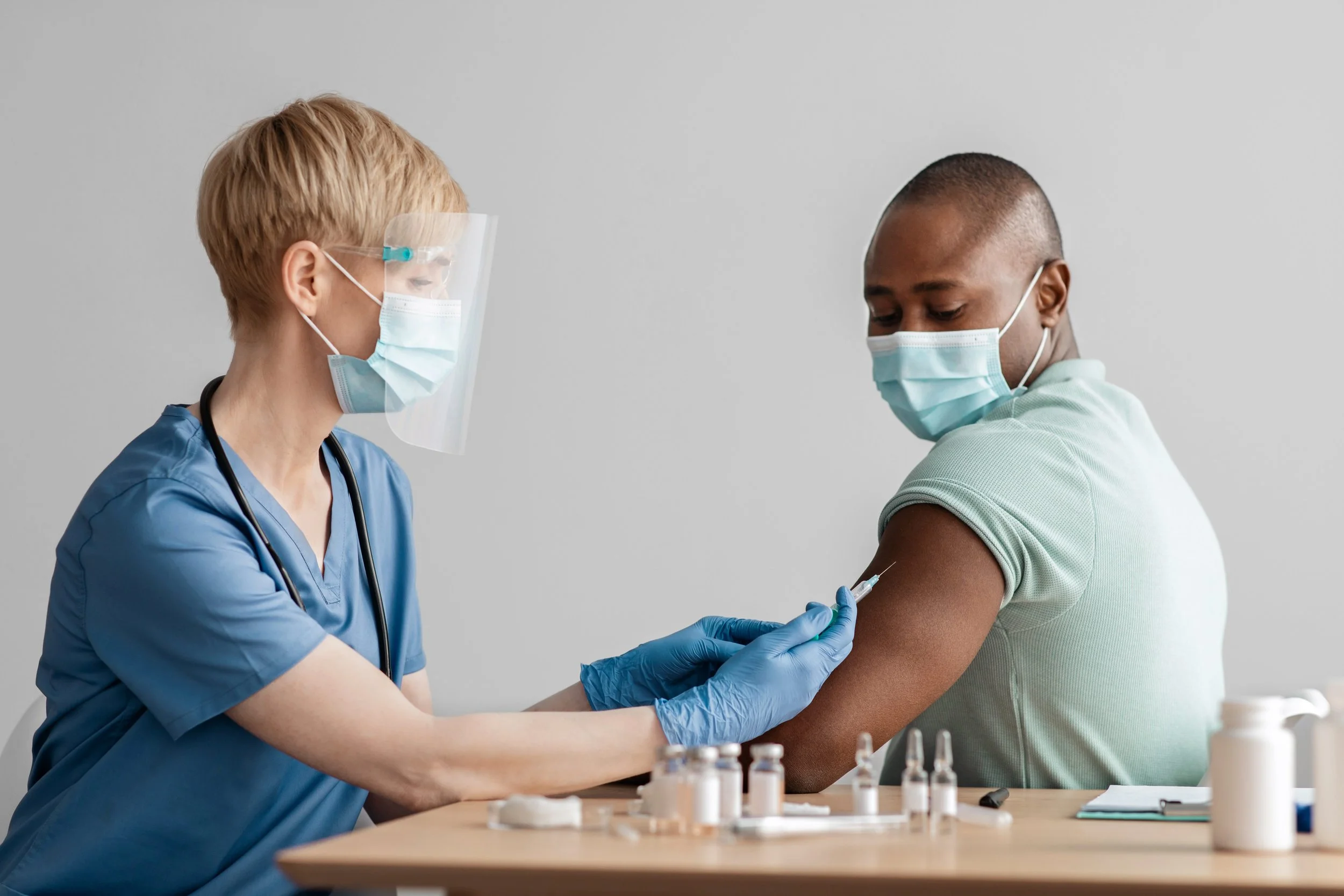Vaccination Requirements for the Immigration Medical Exam
The United States Citizenship and Immigration Services (USCIS) determines vaccination requirements for immigration medical exams in consultation with the Advisory Committee on Immunization Practices (ACIP) and the Centers for Disease Control and Prevention (CDC). A Civil Surgeon will assess which vaccinations an applicant needs, primarily based on the applicant's age and previous vaccination records.
Vaccination requirements may include:
COVID-19 vaccine (complete series)
Mumps
Measles
Rubella
Polio
Tetanus and Diphtheria
Pertussis
Haemophilus Influenzae Type B (Hib)
Hepatitis A
Hepatitis B
Rotavirus
Meningococcal disease
Varicella (Chickenpox)
Pneumococcal disease
Seasonal Influenza
Are you considering moving to the USA and becoming a permanent resident (green card holder)? If so, you'll need to pass a mandatory immigration medical exam. Also known as the green card medical exam, it involves taking your medical history and performing a physical examination.
Medical immigration documentation and disclosure are crucial for both you and the host country. The history-taking and physical exam ensure you're physically and mentally fit to change your immigration status. This process keeps everyone safe and allows potential immigrants to enter the country without complications.
Here's how the immigration process works:
1. You'll need to file a petition to initiate the immigration process. The U.S. Citizenship and Immigration Services(USCIS) will review and approve your petition, after which you can apply for an immigration visa. Along with your biometrics, you'll need to undergo an immigration medical examination.
2. A medical professional will review your overseas medical records and take a detailed history. This includes your general past medical history, allergies, family history, medications, vaccination history, social history, environmental exposure history, travel history, mental health history, substance use history, and sexual history.
3. After the history-taking, you'll undergo a thorough physical exam. You won't need to undress for the exam. The medical professional will examine your exposed skin, head, eyes, ears, nose, and throat, neck, heart and lungs, abdomen, and perform a neurological exam, checking reflexes and other functions. They may also order specific medical tests.
Here's what you need to know about the medical evaluation for immigration:
Age 2 and older: Tuberculosis (TB) blood test
Ages 18-24: Urine test for gonorrhea, blood test for syphilis
Age 18-44: Blood test for syphilis. If TB is suspected, a chest X-ray
After the health exam, the Civil Surgeon will assess your general health and look for any issues. If everything's in order, you'll receive a medical clearance report immediately.
If there are any concerns, you'll need to undergo necessary treatment. You must be declared physically and mentally fit to proceed with your immigration processing.
Why accurate documentation is important
The panel physicians and/or civil surgeons will meticulously document all details in the appropriate forms and related worksheets. The forms should include signatures from the civil surgeon, you, and any other healthcare providers involved in your examination. They may also include signatures from Health Department officials. Providing false or misleading information about your health could have serious consequences for both you and the doctors involved.
Protecting public health
The health exam and medical tests are crucial for public health. If you have a contagious disease and pass the test dishonestly, you could pose a threat to public health and safety. There's a risk you might spread the disease to others in the new country. That's why the civil surgeon ensures you only receive medical clearance if you meet the minimum health requirements. Their goal is to keep everyone safe from diseases.
Tips for a successful immigration medical evaluation:
* Be honest and thorough during the health exam.
* Ensure all healthcare providers who examined you sign the forms.
* Follow the doctor's instructions carefully.
Good luck with your immigration medical evaluation!
Once you schedule your appointment for the history-taking and physical exam, start preparing immediately. Here are the documents you should bring:
Vaccination and immunization records
Copies of any previous chest X-rays
Any tuberculosis (TB) testing and treatment records
Any syphilis testing, treatment, and monitoring records
A government-issued photo ID, such as a state ID, passport, travel permit, or driver's license
Present these documents when requested. If you feel nervous, have questions, or feel uncomfortable, don't hesitate to speak with your civil surgeon. They're there to assist you and ensure you feel at ease. Privacy and confidentiality are paramount during the immigration medical examination. The doctors involved in the exam can't discuss the results with anyone other than you or your designated representative. However, by law, they must report any TB, syphilis, or gonorrhea infections to the local health department.
Ensuring Privacy and Confidentiality
During the immigration medical examination process, maintaining patient-doctor confidentiality and privacy is of utmost importance. The doctors involved in the examination are not at liberty to discuss the evaluation of the tests with anyone other than you or someone whom you designate. However, by law, TB, syphilis, and gonorrhea infections must be reported to the local health department.
